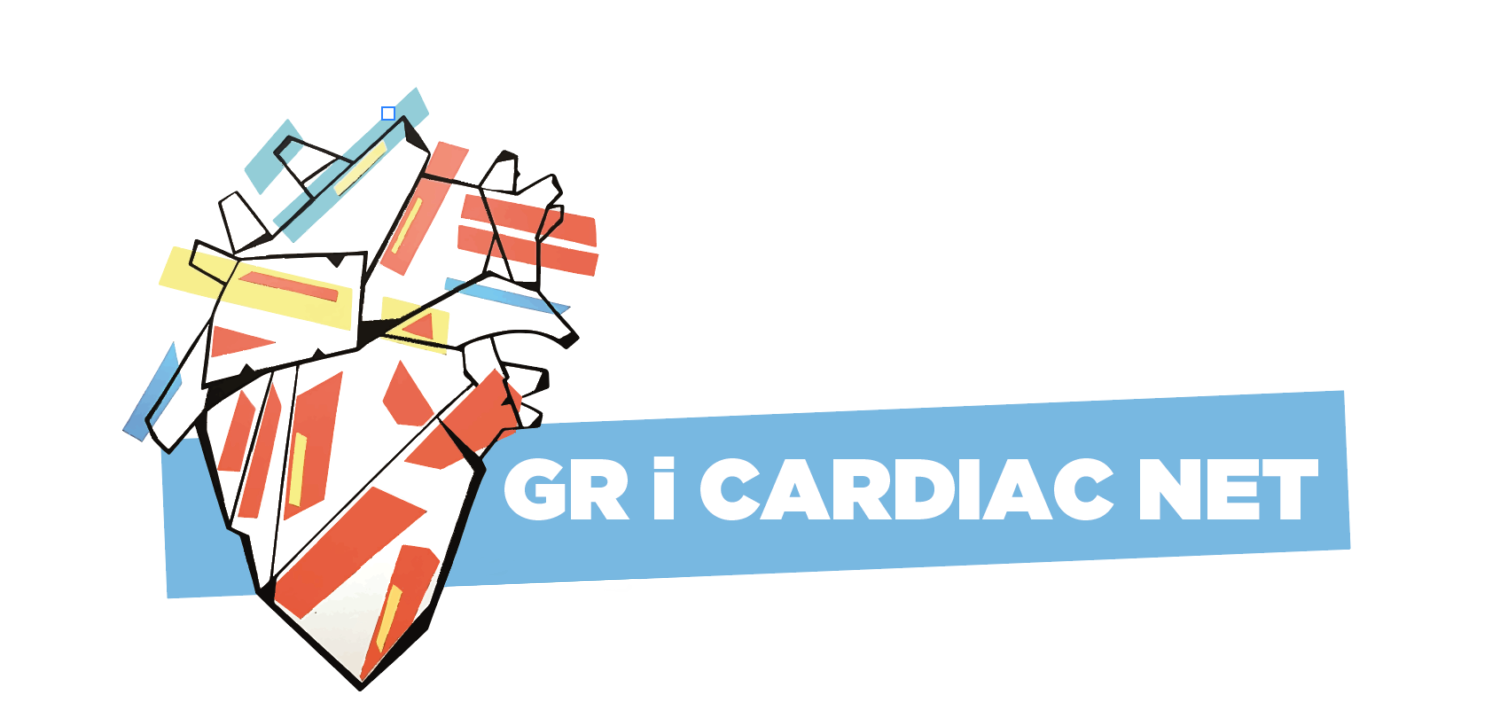Article: ARGIRO BOZONI
"The need to combat the phenomenon of sudden youthful death led to the establishment of the National Network for the Study of Hereditary and Rare Heart Diseases in every country, and by extension, to the founding of the National Network of Precision Medicine in Cardiology and the Prevention of Sudden Youthful Death in Greece," states Mr. Athanasios Kyriazis, Secretary General for Research and Innovation, regarding its inception.
Why is Greece considered a point of reference for Rare Hereditary Diseases? How will the new National Network of Precision Medicine help in the prevention of sudden youthful death? This discussion answers many questions, detailing the development of the Precision Medicine Network in Cardiology and its potential benefits for Greece, as well as how the General Secretariat for Research and Innovation (GSRI) can further enhance this opportunity.
Why is Greece considered a point of reference for Rare Hereditary Diseases? How will the new National Network of Precision Medicine help in the prevention of sudden youthful death? This discussion answers many questions, detailing the development of the Precision Medicine Network in Cardiology and its potential benefits for Greece, as well as how the General Secretariat for Research and Innovation (GSRI) can further enhance this opportunity.
What the Establishment of a National Precision Medicine Network in Cardiology and Sudden Youthful Death Prevention Means for Greece
The phenomenon of sudden death in youth is primarily caused by rare heart diseases, which are, as a rule, hereditary. These diseases form the core of sudden youthful death, and its prevention is directly related to the ability to diagnose and treat hereditary cardiovascular diseases in every country. This is of paramount importance for Greece, which constitutes a natural reserve of hereditary and rare diseases. Based on existing studies from recent decades, it is evident that in our country, and particularly in its island regions, genetic cardiovascular diseases with high mortality rates (such as Naxos disease, Cohen syndrome, Wilson's disease, etc.) are endemic and inherited.
The necessity to combat the phenomenon of sudden youthful death led to the establishment of the National Network for the Study of Hereditary and Rare Heart Diseases in every country, and by extension, to the creation of the National Network of Precision Medicine in Cardiology and the Prevention of Sudden Youthful Death in Greece. This new National Network of Precision Medicine, leveraging advancements in genetics and the multiparametric approach to diseases, will create a National Information Bank with clinicogenetic correlations for these conditions. This bank will serve as a foundation for a personalized approach to cardiac diseases in the near future.
The creation of the country's Epidemiological Map from national registries for sudden cardiac death and the national registry of hereditary cardiovascular diseases, alongside parallel family screening and outcome recording, is expected to yield the following results:
✓ Prevention of Sudden Youthful Death
✓ Revelation of Genetic Disease Clusters ("Nests")
✓ Breaking the Chain of Heredity through Preimplantation Diagnosis
✓ Increased Effectiveness of Targeted Health System Interventions
✓ Further Developing Our Infrastructure We aim to further develop our infrastructure to participate equally and contribute significantly to the ongoing global and European effort in advancing personalized medicine.
✓ Stable Foundations for a National Precision Medicine Unit to Claim a Role in Europe and the Balkans
The necessity to combat the phenomenon of sudden youthful death led to the establishment of the National Network for the Study of Hereditary and Rare Heart Diseases in every country, and by extension, to the creation of the National Network of Precision Medicine in Cardiology and the Prevention of Sudden Youthful Death in Greece. This new National Network of Precision Medicine, leveraging advancements in genetics and the multiparametric approach to diseases, will create a National Information Bank with clinicogenetic correlations for these conditions. This bank will serve as a foundation for a personalized approach to cardiac diseases in the near future.
The creation of the country's Epidemiological Map from national registries for sudden cardiac death and the national registry of hereditary cardiovascular diseases, alongside parallel family screening and outcome recording, is expected to yield the following results:
✓ Prevention of Sudden Youthful Death
✓ Revelation of Genetic Disease Clusters ("Nests")
✓ Breaking the Chain of Heredity through Preimplantation Diagnosis
✓ Increased Effectiveness of Targeted Health System Interventions
✓ Further Developing Our Infrastructure We aim to further develop our infrastructure to participate equally and contribute significantly to the ongoing global and European effort in advancing personalized medicine.
✓ Stable Foundations for a National Precision Medicine Unit to Claim a Role in Europe and the Balkans

How the General Secretariat for Research and Innovation (GSRI) Contributes to this Field and the Network
The GSRI contributes by funding the Network at the following levels:
✓ Human Resources – New Job Openings for Doctors, Geneticists, and Administrative Staff
✓ Genetic Testing Consumables, Ensuring Free Tests
✓ Building Relationships and Educational Initiatives The creation of relationships with other networks and scientific teams in Europe and internationally aims to develop an educational product of European interest.
This can be more specifically expressed through the Network's collaboration with the European Society of Cardiology on educational matters or the establishment of a summer school in Greece. The GSRI primarily funds the Network at these levels, which are crucial for its operation and effectiveness.
✓ Human Resources – New Job Openings for Doctors, Geneticists, and Administrative Staff
✓ Genetic Testing Consumables, Ensuring Free Tests
✓ Building Relationships and Educational Initiatives The creation of relationships with other networks and scientific teams in Europe and internationally aims to develop an educational product of European interest.
This can be more specifically expressed through the Network's collaboration with the European Society of Cardiology on educational matters or the establishment of a summer school in Greece. The GSRI primarily funds the Network at these levels, which are crucial for its operation and effectiveness.
What exactly are you recording, and what is the long-term benefit for the country?
Two major national registries are being created, compatible for future utilization by IDIKA (the Greek e-governance agency for social security), concerning hereditary heart diseases and sudden death. This approach allows for the identification of high-risk groups within the population (family members). The epidemiological recording of this information will lead to the creation of the clinicogenetic map of the country, thus identifying areas with a high prevalence of these phenomena. Targeted interventions will then be implemented in these areas.
Finally, the creation of these two national registries and their resulting products will help the country align its efforts with international developments towards precision medicine. The long-term benefit for the country is that this endeavor will eradicate many of these diseases and leave an imprint on the country, bringing a glimpse of tomorrow to today (Precision Medicine).
If we could see the end of this program's journey, what data would we have in our hands?
These registries will lead to the creation of three products:
✓ Direct Clinical and Genetic Screening and Diagnosis This will involve the direct clinical and genetic screening of families with hereditary diseases and/or sudden youthful death. The aim is to diagnose and appropriately treat family members, especially those with silent and subclinical forms of these dangerous diseases, or relatives who are carriers of pathological genes without clinical manifestations. It's important to note that sudden youthful death can be the first manifestation of these diseases, often without any warning phase. Therefore, from a public health perspective, it's crucial to identify and protect these individuals before the clinical manifestation of the disease (e.g., sudden youthful death, stroke, heart failure).
✓ Breaking the Chain of Heredity This involves breaking the chain of heredity and halting the transmission of these diseases to the next generation through preimplantation diagnosis (PGD) before pregnancy.
✓ Epidemiological Map and Targeted Interventions The epidemiological map of Greece for hereditary heart diseases and sudden youthful death will lead to the identification of regions with an increased prevalence of such phenomena (e.g., clusters or "nests" of hereditary conditions, like Naxos disease). This will enable targeted and effective interventions by the country's public healthcare system.
✓ Direct Clinical and Genetic Screening and Diagnosis This will involve the direct clinical and genetic screening of families with hereditary diseases and/or sudden youthful death. The aim is to diagnose and appropriately treat family members, especially those with silent and subclinical forms of these dangerous diseases, or relatives who are carriers of pathological genes without clinical manifestations. It's important to note that sudden youthful death can be the first manifestation of these diseases, often without any warning phase. Therefore, from a public health perspective, it's crucial to identify and protect these individuals before the clinical manifestation of the disease (e.g., sudden youthful death, stroke, heart failure).
✓ Breaking the Chain of Heredity This involves breaking the chain of heredity and halting the transmission of these diseases to the next generation through preimplantation diagnosis (PGD) before pregnancy.
✓ Epidemiological Map and Targeted Interventions The epidemiological map of Greece for hereditary heart diseases and sudden youthful death will lead to the identification of regions with an increased prevalence of such phenomena (e.g., clusters or "nests" of hereditary conditions, like Naxos disease). This will enable targeted and effective interventions by the country's public healthcare system.

What instructions could you give a citizen regarding the recording and consequent reduction of sudden deaths, and prevention related to heredity?
It's extremely important for citizens to know their family history, as this significantly determines and influences their health parameters. With timely information and knowledge of their family history, citizens are in a position to manage any situation to their benefit, thereby protecting their health and, consequently, their lives.
It's also crucial for families to coordinate internally so that these screenings have a multiplicative benefit. For example, by effectively contributing to breaking the chain of heredity and interrupting the continuous transmission of these diseases to the next generation through preimplantation diagnosis (PGD) before pregnancy, utilizing genetic testing based on scientific criteria.
What other benefits arise and will arise from this registration?
Benefits of the Project are:
✓ Creation of a National Registry for Sudden Youthful Deaths This involves the creation of a National Registry for Sudden Youthful Death, in which forensic doctors record the findings of autopsies.
✓ Creation of a National Registry for Hereditary and Rare Diseases This involves the creation of a Registry of Hereditary Heart Diseases, where clinical data from patients are stored by the Network's doctors.
✓ Modern Method of Information Gathering This refers to the Repository of Genetic Data, where the results of genetic tests from patients, deceased individuals, and even the families of the deceased are stored.
✓ Secure Data Management and High-Risk Family Screening This involves the secure collection, analysis, storage, and distribution of data, along with the screening of high-risk families identified through these two registries.
✓ Creation of an Epidemiological Clinicogenetic Map This involves the creation of an epidemiological clinicogenetic map of the country for these diseases and for sudden youthful death.
✓ Availability of Free Genetic Testing for High-Risk Families and the Evolution of Bioinformatics This refers to the provision of free genetic tests to high-risk families and the ongoing advancement of bioinformatics.
✓ Creation of Biobanks and Study of Hereditary Cardiovascular Diseases This involves the creation of biobanks and the study of hereditary cardiovascular diseases, which serve as magnifying glasses for mechanisms common to other widespread diseases.
✓ Support for the Operation of Three Precision Medicine Units and the Clinical Network This refers to the support for the operation of the three core Precision Medicine Units in Cardiology established within Greece, along with the support and development of the already established clinical network in Athens and Thessaloniki.
✓ Training New Doctors and Effective Research Management This involves the training of new doctors by the burgeoning network and the effective management of research outcomes, with the aim of advancing Precision Medicine and utilizing research for the benefit of Public Health.
✓ Opportunity for Participation and Funding from International Research Programs
✓ Education in Hereditary and Rare Cardiovascular Diseases – Creation of an Educational Package
✓ Participation in Orphan Drug Studies
✓ Genetic Test Decoding and Precision Medicine Diagnosis Familiarity, and Funding from Pharmaceutical Companies and Corporate Social Responsibility by Private Organizations
✓ Creation of a National Registry for Sudden Youthful Deaths This involves the creation of a National Registry for Sudden Youthful Death, in which forensic doctors record the findings of autopsies.
✓ Creation of a National Registry for Hereditary and Rare Diseases This involves the creation of a Registry of Hereditary Heart Diseases, where clinical data from patients are stored by the Network's doctors.
✓ Modern Method of Information Gathering This refers to the Repository of Genetic Data, where the results of genetic tests from patients, deceased individuals, and even the families of the deceased are stored.
✓ Secure Data Management and High-Risk Family Screening This involves the secure collection, analysis, storage, and distribution of data, along with the screening of high-risk families identified through these two registries.
✓ Creation of an Epidemiological Clinicogenetic Map This involves the creation of an epidemiological clinicogenetic map of the country for these diseases and for sudden youthful death.
✓ Availability of Free Genetic Testing for High-Risk Families and the Evolution of Bioinformatics This refers to the provision of free genetic tests to high-risk families and the ongoing advancement of bioinformatics.
✓ Creation of Biobanks and Study of Hereditary Cardiovascular Diseases This involves the creation of biobanks and the study of hereditary cardiovascular diseases, which serve as magnifying glasses for mechanisms common to other widespread diseases.
✓ Support for the Operation of Three Precision Medicine Units and the Clinical Network This refers to the support for the operation of the three core Precision Medicine Units in Cardiology established within Greece, along with the support and development of the already established clinical network in Athens and Thessaloniki.
✓ Training New Doctors and Effective Research Management This involves the training of new doctors by the burgeoning network and the effective management of research outcomes, with the aim of advancing Precision Medicine and utilizing research for the benefit of Public Health.
✓ Opportunity for Participation and Funding from International Research Programs
✓ Education in Hereditary and Rare Cardiovascular Diseases – Creation of an Educational Package
✓ Participation in Orphan Drug Studies
✓ Genetic Test Decoding and Precision Medicine Diagnosis Familiarity, and Funding from Pharmaceutical Companies and Corporate Social Responsibility by Private Organizations
What are the GSRI's plans for the Network after the program's completion?
The GSRI will evaluate the Network's effectiveness, its scientific standing, its social impact and benefit, as well as its international collaborations. Based on this assessment, it will then decide on the future framework of action, always aiming for the maximum benefit for society and its citizens.
Our country, due to its unique characteristics, is considered a reference point for Rare Hereditary Diseases. With the development of the Precision Medicine Network in Cardiology, it has the potential to play a significant role in research concerning their treatment. What could be the benefits for the country? How can the GSRI enhance this opportunity?
Due to its islands, which historically functioned as closed societies, Greece exhibits pronounced phenomena of rare and hereditary diseases. We could say it represents a natural park of rare and hereditary diseases—in other words, a natural laboratory of international scientific interest.
These characteristics are comparative advantages for the country that we must leverage productively, yielding diverse benefits. These benefits extend beyond targeted interventions in the healthcare system to include a substantial contribution from Greece to the ongoing global and European effort in developing personalized medicine.
With the establishment of the National Network of Precision Medicine in Cardiology and the Prevention of Sudden Youthful Death, the General Secretariat for Research and Innovation (GSRI) laid the groundwork for a national precision medicine unit. This unit will aim for a significant role in Europe and the Balkans, supporting the development of further infrastructure, thus enabling Greece to participate equally and contribute substantially and decisively to the advancement of personalized medicine.

